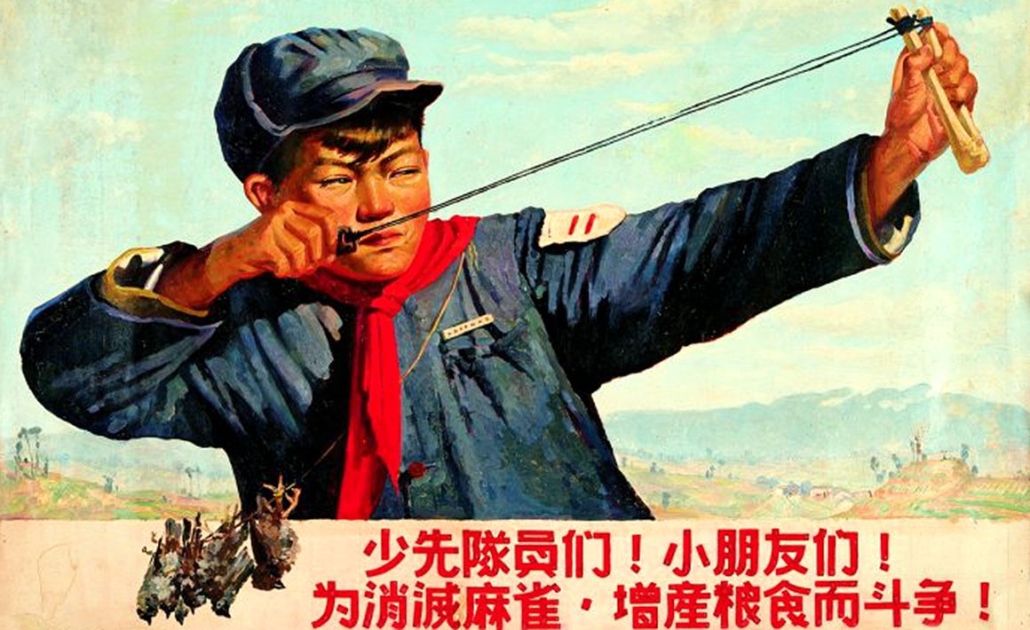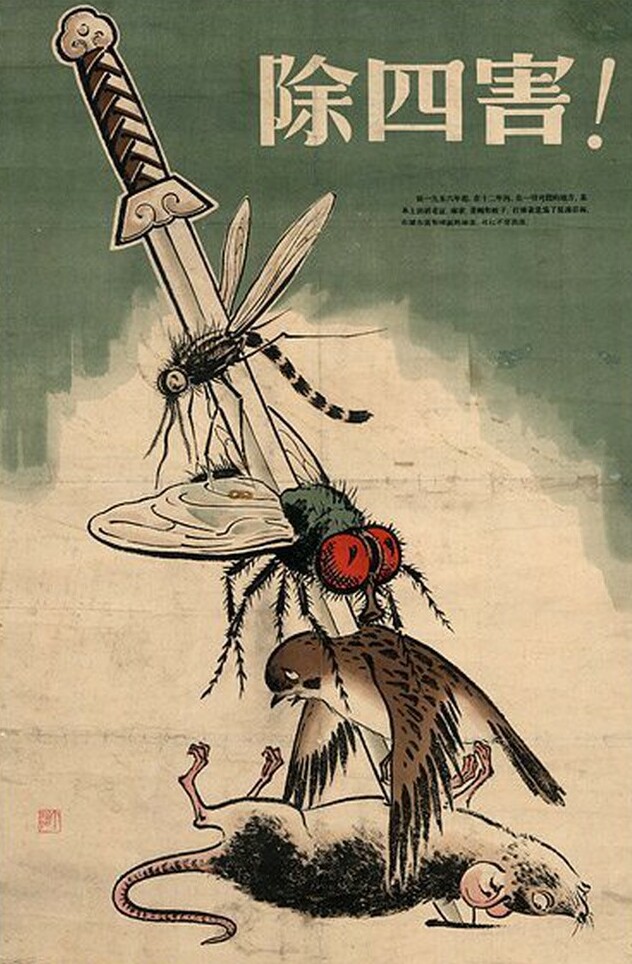What was the Four Pests campaign?
Topic of Study [For H2 History 9174 Students]:
Paper 1: The Development of the Global Economy (1945-2000)
Section B: Essay Writing
Theme II Chapter 2: Transformation of East Asian Economies (China, 1978-2000)
The second Five Year Plan: Great Leap Forward
In 1958, the Chairman of the Chinese Communist Party Mao Zedong (毛澤東) introduced the second Five Year Plan (1958-1962), also known as the Great Leap Forward. The ambitions Mao aspired to transform China from an agrarian society to a modern, industrial society. Mao even believed that China could outproduce Great Britain, the nation that experienced the Industrial Revolution.
Com[rade] Khrushchev told us that the Soviet Union will overtake America in fifteen years. Well, then, I can also say in a preliminary way that in fifteen years we, too, possibly, will overtake England.
[…] And what will China have in fifteen years’ time? China, possibly, will have 40 million tons. Calculate: doesn’t it show that the advantage is on our side? In this case, our camp already has two such countries: the Soviet Union, which will overtake America in fifteen years, and China, which will overtake England in fifteen years.
In the end, what is the bottom line of the speech? We need to have a fifteen year period of peace. Whatever one says, the aim is to use all means to strive for the fifteen year peaceful period. In this case, we’ll really be undefeatable in the whole world, and no one will dare to fight against us.
Excerpt from the unedited translation of Mao Zedong’s Speech at the Moscow Conference of Communist and Workers’ Parties, 18 November 1957.
Accelerated agricultural development and the ‘Four Pests’
Between 1958 and 1960, millions of Chinese citizens moved onto communes. The communes would function in a self-sufficient manner, covering key aspects like industry, agriculture, governance, education and even healthcare. The rural Chinese toiled day and night, in hopes of raising crop yield to impress their leaders.
As the Great Leap Forward was underway, Mao launched the ‘Four Pests’ campaign, also known as the ‘Four Evils’. It was a hygiene campaign to exterminate rats, mosquitoes, flies and sparrows. By doing so, the Chinese leader believed that the grains produced would be kept safe. The extermination of these ‘pests’ was also meant to keep out infectious diseases.


For instance, the Chinese shot the sparrows and destroyed their nests. The farmers were asked to make as much noise as they could so that the sparrows were chased away. In doing so, these birds were forced to take flight for a sustained duration till they died of exhaustion. They also armed themselves with fly swatters, guns and gongs to kill these vermin. By the end of the Campaign, about 1.5 billion rats and 1 billion sparrows were decimated.
In 1958, the Chinese government established a bureau for the extermination of sparrows in Beijing and started a war on sparrows. Sticks, slingshots, and poison cookies were prepared, after which a large parade was held celebrating the extermination of the sparrows. As a result, over two thousand million sparrows were killed. This cull nearly annihilated the total sparrow population.
Did this campaign result in a successful rice harvest? No. As sparrows disappeared, as of 1959, the number of insects in China increased. In 1960, an attack of locusts caused half of the expected rice harvest to disappear.
An excerpt taken from “Platform Strategy: A New Paradigm For A Changing World” by Ki-chan Kim, Chang-seok Song and Il Im.
A disastrous consequence: Collapse of the ecosystem and Widespread Famine
Yet, there were serious repercussions as a result of this Campaign. Given the essential role of the sparrow in feeding on the locusts, the severe decline of the sparrow population allowed the locusts to thrive, devouring fields of grain. In addition to the use of questionable farming techniques, a mass famine hit China. An estimated of 30 million people died during the Great Leap Forward.
Join our JC History Tuition to learn more about the economic transformation of China and Japan under the theme of The Global Economy. The H2 and H1 History Tuition feature online discussion and writing practices to enhance your knowledge application skills. Get useful study notes and clarify your doubts on the subject with the tutor. You can also follow our Telegram Channel to get useful updates.
We have other JC tuition classes, such as JC Math Tuition and JC Chemistry Tuition. For Secondary Tuition, we provide Secondary English Tuition, Secondary Math tuition, Secondary Chemistry Tuition, Social Studies Tuition, Geography, History Tuition and Secondary Economics Tuition. For Primary Tuition, we have Primary English, Math and Science Tuition. Call 9658 5789 to find out more.











